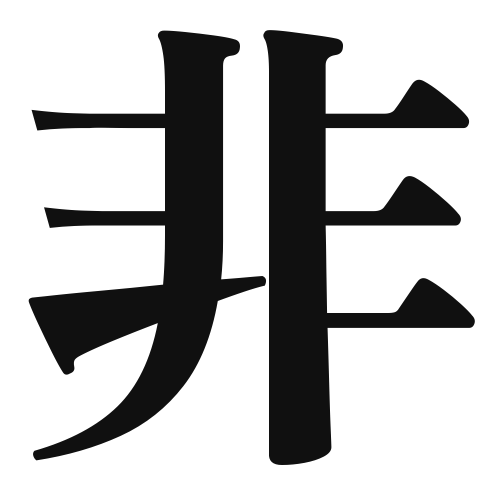1. Overview of Meaning
The kanji “非” (hi) means “non-” or “not.” It is used to indicate negation or the absence of something. It often appears in words that express opposition or contradiction.
2. Formation and Radical
Formation of the Kanji: The kanji “非” is classified as a phonetic-ideographic character (形声文字). It combines the meaning of negation with a phonetic component.
Radical: The radical for “非” is also “非,” which is associated with the concept of negation or opposition.
3. Examples of Usage
Common Words and Phrases: Some frequently used words that include “非” are:
- 非常 (hijou) – emergency, unusual
- 非公開 (hikoukai) – not open to the public
- 非常識 (hijoushiki) – lack of common sense
Example Sentences in Daily Conversation:
- この情報は非公開です。 (Kono jouhou wa hikoukai desu.) – This information is not open to the public.
- 非常識な行動は避けるべきです。 (Hijoushiki na koudou wa sakeru beki desu.) – One should avoid unreasonable behavior.
4. Synonyms and Antonyms
Similar Kanji: A similar kanji is “無” (mu), which also indicates negation but is more focused on the absence of something rather than opposition.
Antonyms: The antonym of “非” is “是” (ze), which means “is” or “to be,” indicating affirmation or existence.
5. Cultural and Historical Background
Relation to Japanese Culture: The concept of negation is significant in Japanese culture, often reflecting the importance of harmony and the avoidance of direct confrontation.
Proverbs and Idioms: An example of a proverb that includes “非” is “非常の時に非常の人が現れる” (Hijou no toki ni hijou no hito ga arawareru), which means “In times of emergency, extraordinary people appear.”
